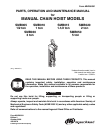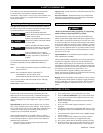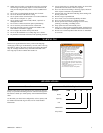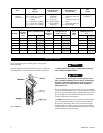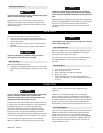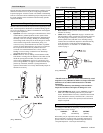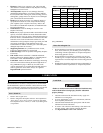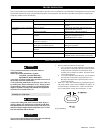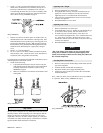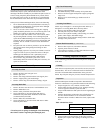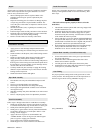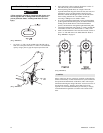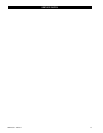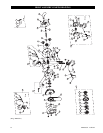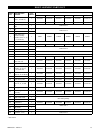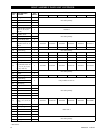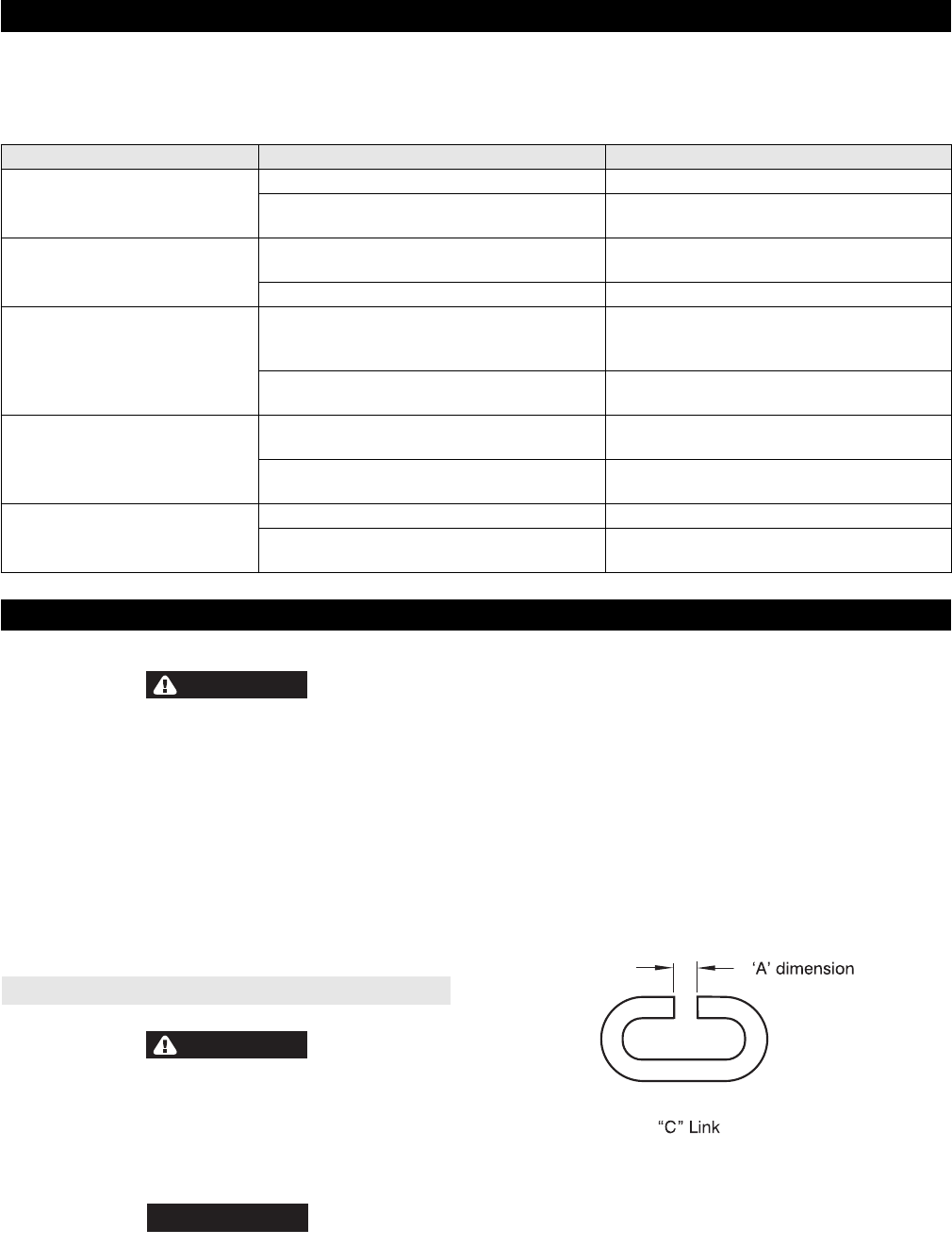
8 MHD56391 - Edition 2
TROUBLESHOOTING
This section provides basic troubleshooting information. Specific causes to problems are best identified by thorough inspections performed
by personnel instructed in safety, operation and maintenance of this equipment. The chart below provides a brief guide to common hoist
symptoms, probable causes and remedies.
SYMPTOM
CAUSE REMEDY
Hoist will not operate. Hoist is overloaded. Reduce load to within rated capacity.
Slip clutch not adjusted. Adjust slip clutch. Refer to “MAINTENANCE”
section.
Load continues to move when hoist
is stopped.
Brake is slipping. Check brake adjustment and brake disc wear.
Check brake discs are clean.
Hoist is overloaded. Reduce load to within rated capacity.
Load chain binds. Damaged load chain, pinion shaft, gears or
sheaves.
Disassemble hoist, inspect and repair or replace
damaged components. Refer to
“MAINTENANCE” section.
Load chain not installed properly (twisted,
kinked or “capsized”)
Remove load chain and reinstall.
Hand chain binds. Damaged hand chain, hand chain wheel, pinion
shaft, gears, load chain, sheaves.
Disassemble hoist, inspect and repair or replace
damaged components.
Hand chain not installed properly (twisted or
kinked).
Remove hand chain and reinstall.
Load hook latch does not work. Latch broken. Replace hook latch.
Load hook bent or twisted. Inspect load hook as described in
“INSPECTION” section. Replace if necessary.
MAINTENANCE
WARNING
• Never perform maintenance on the hoist while it is
supporting a load.
• Before performing maintenance, tag hoist:
DANGER - DO NOT OPERATE -
EQUIPMENT BEING REPAIRED.
• Only allow personnel trained in the operation and service of
this product to perform maintenance.
• After performing maintenance on the hoist, test to 125% of
its rated capacity before returning to service. Testing to 150%
of rated capacity will be required to set overload clutch and
might be required to comply with standards and regulations
set forth in areas outside of the USA.
Installing New Load Chain
WARNING
• To prevent a falling load, which can cause death, injury or
property damage, the hook must be on left fall of load chain
and right fall must be attached to hoist body with anchor pin
and anchor hanger. Right and left designations are as viewed
from the hand chain side of the hoist.
NOTICE
• Do not remove the old load chain from the hoist. The old load
chain can be used to install the new load chain.
1. Remove end of load chain from anchor pin.
a. 1/2 to 3 ton units are single fall hoists. The load end of
the load chain is anchored to the bottom hook assembly.
To disconnect the load chain from the bottom hook
assembly remove anchor pin and nut. On bottom hook
remove spring and pin.
b. 5 ton units are double chain fall hoists. The load end of
the load chain is anchored to suspension plates. To
disconnect load chain from suspension plates remove
anchor bolt assembly.
2. Make a “C” link in new load chain by grinding through one
side of the end link. Refer to Dwg. MHP0817 on page 8. To
avoid twisting, the load chain on 2, 3 and 5 ton units must
have an odd number of links, not counting the “C” link.
(Dwg. MHP0817)



